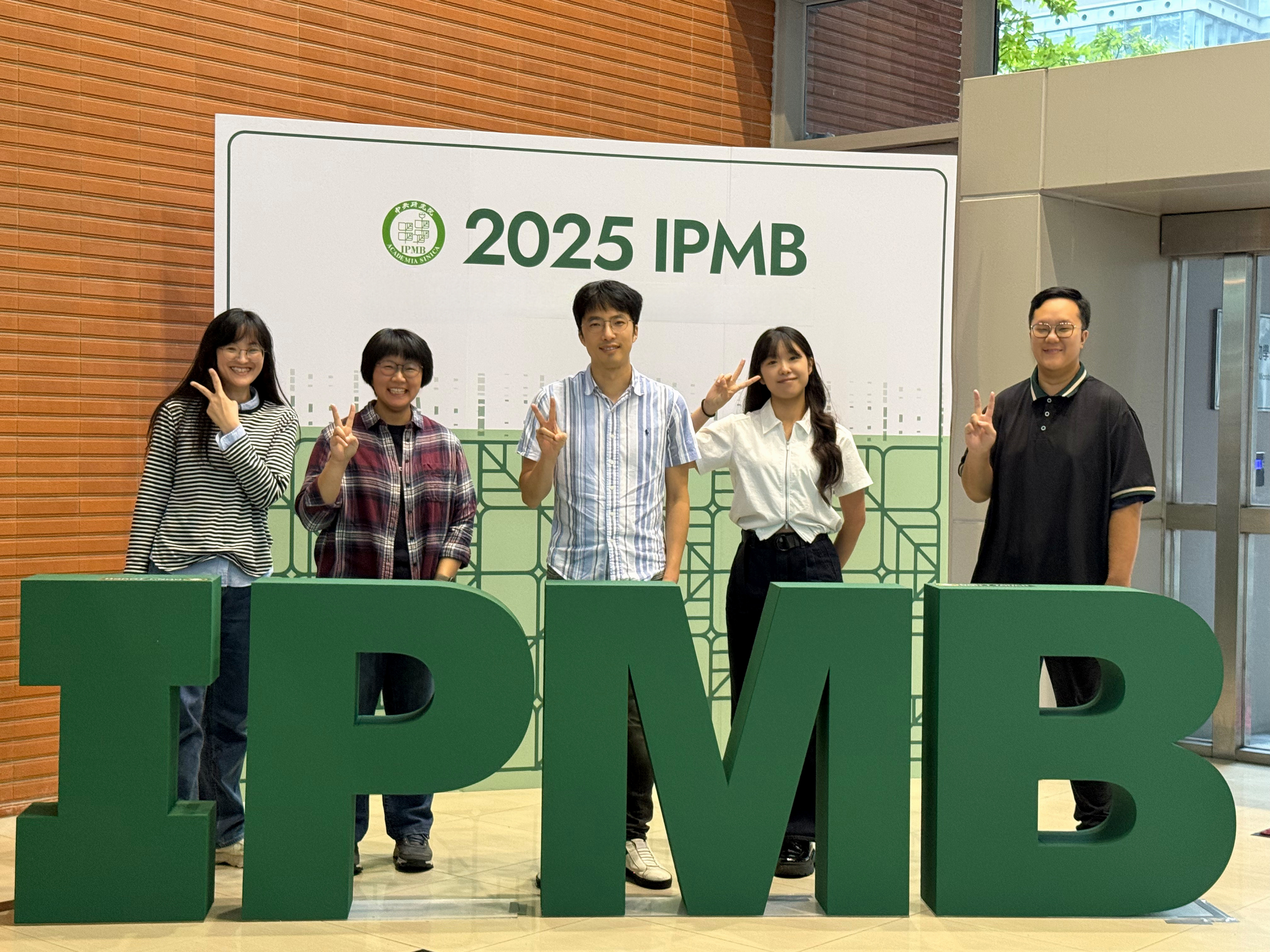Proteomics Core Lab

Committee members:
Institute of Plant and Microbial Biology
Assistant Research Specialist:
Research Assistant:
- Chin-Wen Chen
- Pei-Yi Lin
- Ting-An Chen
- Po-Tsang Chen
Contact phone number:
- 02-27871157 (Chuan-Chih)
- 02-27871030 (Lab)
Email:
- cchsu@gate.sinica.edu.tw (Chuan-Chih)
- pclipmb@gate.sinica.edu.tw (Lab)
Location:
- A227, Agricultural Technology Building
Welcome to the web home of the Proteomics Core Laboratory (PCL) in the Institute of Plant and Microbial Biology. The Proteomics Core provides state-of-the-art liquid chromatography tandem mass spectrometry (LC-MS/MS) proteomic services to researchers throughout Institute of Plant and Microbial Biology (IPMB) and Agricultural Biotechnology Research Center (ABRC). The Proteomics Core offers a variety of services including protein identification, quantifying protein expression levels, identifying post-translational modifications, protein interactome mapping, large-scale (phospho)proteomics profiling, targeted proteomics analysis, and sample preparation from a broad range of organisms such as plants, bacteria, and fungi. Currently the Proteomics Core has three well-trained scientists and in operation a Q-Exactive mass spectrometer. We have various proteomics software resources including Mascot Server, Proteome Discoverer, MaxQuant, and Skyline.
Our mission is to use cutting-edge proteomics technologies to reveal a deeper understanding of plant and microbial biology. Our discovery and targeted proteomics will assist researchers to accelerate their research timelines and to provide the key insights they need to move forwards. We are interested in developing new proteomic approaches and implementing these methods to study unique scientific projects. We also provide user training and consultation of modern proteomic techniques for our colleagues.
Services
Discovery Proteomics
- Protein identification
- Post-translational modifications (PTMs)
- Global proteomic quantification
- Protein interactome mapping
Targeted Proteomics
Sample Analysis Workflow
- Project Set-up
- Researcher meets with PCL scientists to discuss the project objective
- PCL scientists determine the most suitable strategies to analyze samples
- Project Execution
- Researcher submits the form and brings samples to PCL
- PCL completes sample preparation and LC-MS/MS analysis
- Project Reporting and billing
- PCL sends data report to researchers upon project completion
- PCL sends bills to researchers and researchers pay the bills
Sample Submission Form
Instruments
- nLC-nESI-MS/MS system (Thermo Q Exactive MS)
- High performance liquid chromatography (HPLC, Agilent 1200)
- Academia Sinica Common Mass Spectrometry Facilities
- nLC-nESI-MS/MS system (Bruker timsTOF HT MS)
Selected Publications
- Publications from the PCL users
- Chin, H. S.; Varadharajulu, N. R.; Lin, Z.-H.; Hsu, C.-C.; Yu, S.-F. Phosphoproteomic analysis reveals distinctive responses in Mangrovibacter phragmatis under high-salinity condition. Biophys. Res. Commun. 2024, 736, 150514.
- Upadhyay-Tiwari, N.; Huang, X.-J.; Lee, Y.-C.; Singh, S. K.; Hsu, C.-C.; Huang, S.-S.; Verslues, P. E. The Non-Phototrophic Hypocotyl3 (NPH3)-domain protein NRL5 is a trafficking-associated GTPase essential for drought resistance. Sci. Adv. 2024, 10, eado5429.
- Lin, H.-H.; Wu, Y.-S.; Jian, T.-Y.; Liao, J.-Y.; Chang, M.-T.; Shyur, L.-F.; Lin, Y.-L. Phytogalactolipids activate humoral immunity against colorectal cancer. J. Exp. Clin. Cancer Res., 2023, 42, 95.
- Jain, D.; Schmidt, W. Protein Phosphorylation Orchestrates Acclimations of Arabidopsis Plants to Environmental pH. Mol. Cell. Proteomics, 2023, 23, 100685.
- Vélez-Bermúde, I. S.; Schmidt, W. The interactome of histone deacetylase HDA19 in dark-grown Arabidopsis seedlings. Front. Plant Sci., 2023, 14:1296767.
- Huang, C.-K.; Lin, W.-D.; Wu, S.-H. An improved repertoire of splicing variants and their potential roles in Arabidopsis photomorphogenic development. Genome Biol. 2022, 23(1), 50.